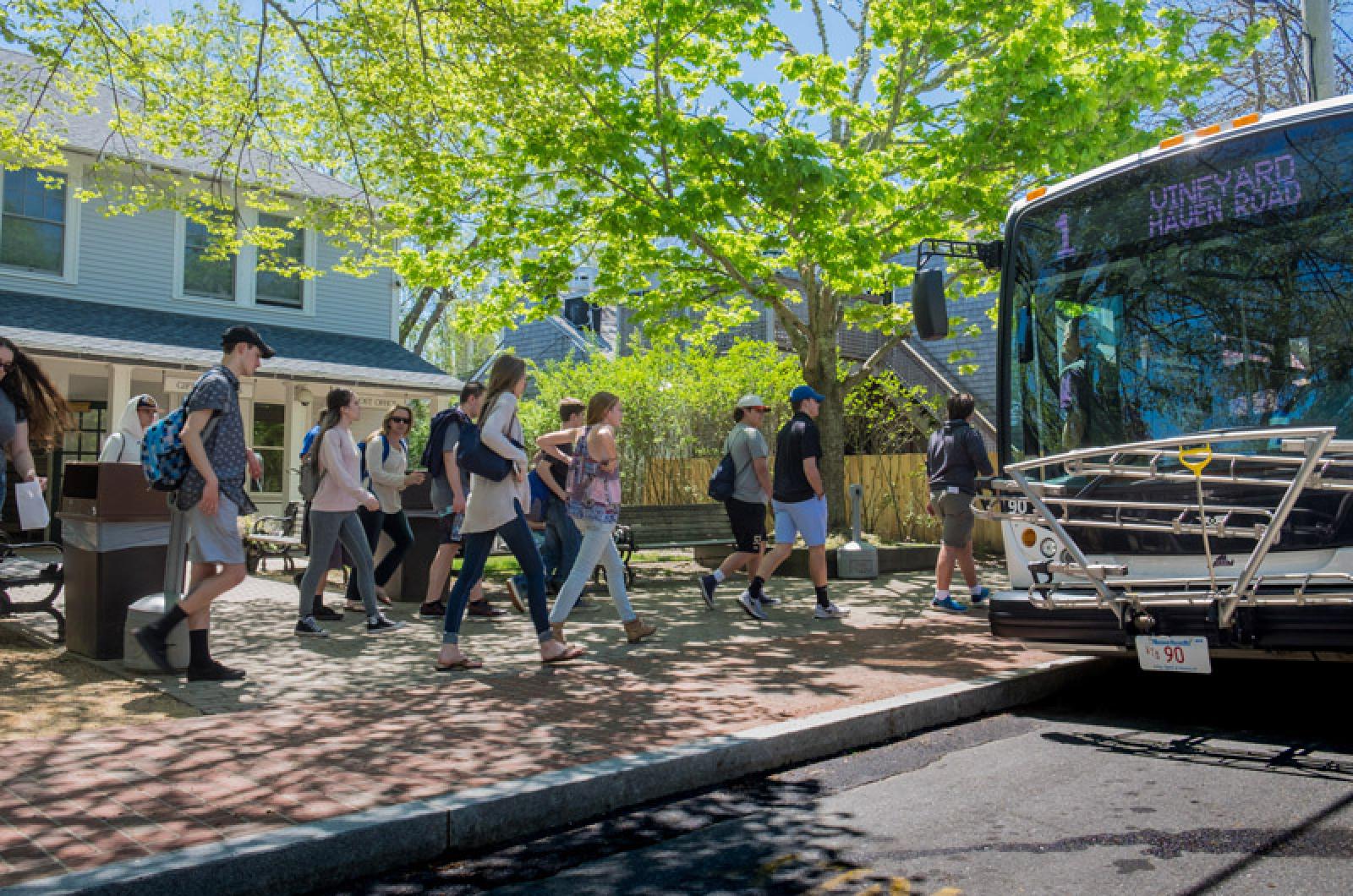The Vineyard Transit Authority has received a $1.2 million federal grant to move forward with a project to add electric buses to its fleet.
The competitive grant from the Federal Transit Authority will help the transit authority purchase two additional electric buses and an energy storage system in addition to four electric buses that were already on the way, according to VTA administrator Angela Grant.
The grant program awards funding for the purchase of zero-emission or low-emission transit buses and related costs. The VTA has also received a $1.4 million local match from the MassDOT Regional Transit Authority Capital Asset Program.
In January the VTA first announced plans to start transitioning from clean diesel buses to electric buses. In addition to reduced emissions, Ms. Grant said, electric buses will be quieter and more reliable than diesel buses.
Electric buses will also lower maintenance costs associated with the current buses’ sensors and computer systems, according to Ms. Grant. “The cost for maintaining diesel buses is significantly higher,” she said. With so many issues, it was time to transition, she said, and “electric has come a long way.”
Four electric buses will arrive on the Island next June, with another two arriving in August, Ms. Grant said. The new buses require significant training for operators and will be rolled out slowly over the summer. As electric buses are introduced, she said, some of the VTA’s fleet of 32 diesel buses will be retired.
A 35-foot electric bus is about $750,000, Ms. Grant said, compared to $425,000 for a 35-foot diesel bus like the ones now used by the VTA.
She said the VTA does not anticipate fare increases related to the transition to electric buses.
The federal grant will also help pay for the infrastructure involved with switching over to electric vehicles, she said. This includes an energy storage system installed at VTA headquarters. The system consists of a bank of batteries that can be charged through the grid during non-demand times. Ultimately a solar canopy will also be installed to create backup power to charge the vehicles, Ms. Grant said.
She said the storage system will be in place by the end of 2018, while the solar canopy will go out to bid this year and will take about 18 months to complete.







Comments (7)
Comments
Comment policy »